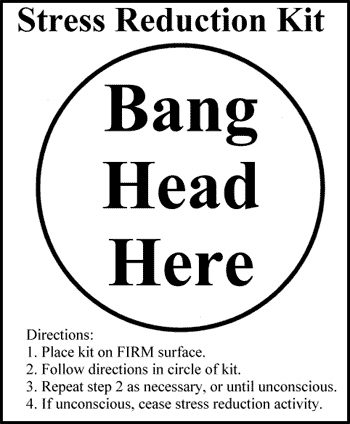Calories in calories out what science says

Dissecti0n
Posts: 63 Member
So this whole Thermodynamics thing gets thrown around a lot but lets see what I found online
It is commonly held that "a calorie is a calorie", i.e. that diets of equal caloric content will result in identical weight change independent of macronutrient composition, and appeal is frequently made to the laws of thermodynamics. We have previously shown that thermodynamics does not support such a view and that diets of different macronutrient content may be expected to induce different changes in body mass.
In this review, for pedagogic clarity, we reframe the theoretical discussion to directly link thermodynamic inefficiency to weight change.
KEYWORD- THEORETICAL.
It is commonly held that "a calorie is a calorie", i.e. that diets of equal caloric content will result in identical weight change independent of macronutrient composition, and appeal is frequently made to the laws of thermodynamics. We have previously shown that thermodynamics does not support such a view and that diets of different macronutrient content may be expected to induce different changes in body mass.
In this review, for pedagogic clarity, we reframe the theoretical discussion to directly link thermodynamic inefficiency to weight change.
KEYWORD- THEORETICAL.
0
Replies
-
So are you arguing that a calorie is a calorie or that clean eating vs not so clean eating is better or that calories in vs calories out is nonsense? . its like you took two topics and smashed them together..0
-
So are you arguing that a calorie is a calorie or that clean eating vs not so clean eating is better or that calories in vs calories out is nonsense? . its like you took two topics and smashed them together..
No it doesn't...0 -
So are you arguing that a calorie is a calorie or that clean eating vs not so clean eating is better or that calories in vs calories out is nonsense? . its like you took two topics and smashed them together..
No it doesn't...
No what doesn't? I was asking the OP to clarify what they are trying to say..0 -
I am saying calories in calories out is not 100%So are you arguing that a calorie is a calorie or that clean eating vs not so clean eating is better or that calories in vs calories out is nonsense? . its like you took two topics and smashed them together..0 -
So lets clear up something.
Theory vs. Fact vs. Theory
Theory in laymen's terms is a hypothesis that you are trying to prove with anecdotal evidence. Most commonly used for things like english papers or M.A. Thesis
Facts things science has proven as true. Like that the earth revolves around the sun, gravity, existence of DNA, and atoms.
Theory in scientific terms. A way to explain FACTS.
Theories in science are ways to explain things science KNOWS to be TRUE.0 -
So are you arguing that a calorie is a calorie or that clean eating vs not so clean eating is better or that calories in vs calories out is nonsense? . its like you took two topics and smashed them together..
No it doesn't...
No what doesn't? I was asking the OP to clarify what they are trying to say..
I pick the red pill0 -
I am saying calories in calories out is not 100%So are you arguing that a calorie is a calorie or that clean eating vs not so clean eating is better or that calories in vs calories out is nonsense? . its like you took two topics and smashed them together..
Well, I hate to disagree and I could be wrong but I have found if you eat less and move more then you typically lose weight. Sticking to a TDEE -20% approach and reevaluating the TDEE after every 10 pounds loss has worked for me. Typically when people stop losing or don't lose they are simply not calculating their calorie intake correctly or over estimating the calorie burn.0 -
Oh brother... not this thread... again!
Yes it is 100%... No it's not... Yes it is.... Gifs.... /end thread and return to counting calories0 -
So are you arguing that a calorie is a calorie or that clean eating vs not so clean eating is better or that calories in vs calories out is nonsense? . its like you took two topics and smashed them together..
No it doesn't...
No what doesn't? I was asking the OP to clarify what they are trying to say..
It isn't like they smashed two topics together.
What they are suggesting is that a diet of 80-10-10, 10-80-10-, or 10-10-80 of equal caloric content will not produce the same results over time.
Which is partially true. In the short term, the results would be similar, but as time goes on the differences will become greater. This is mainly due to the change in body composition as a result. But other factors would be at play as well, such as increased/decreased output as a result of less energy from lower carb/lower fat.0 -
This thread makes me want to bang my head against the wall.0
-
Cool.
I'm sure we'll see something useful that hasn't been posted in the previous 8,234,587,231 threads on exactly this topic.0 -
Sure it is. At least my own experience of losing 34 pounds has supported this.
I am saying calories in calories out is not 100%So are you arguing that a calorie is a calorie or that clean eating vs not so clean eating is better or that calories in vs calories out is nonsense? . its like you took two topics and smashed them together..0 -
So are you arguing that a calorie is a calorie or that clean eating vs not so clean eating is better or that calories in vs calories out is nonsense? . its like you took two topics and smashed them together..
No it doesn't...
No what doesn't? I was asking the OP to clarify what they are trying to say..
It isn't like they smashed two topics together.
What they are suggesting is that a diet of 80-10-10, 10-80-10-, or 10-10-80 of equal caloric content will not produce the same results over time.
Which is partially true. In the short term, the results would be similar, but as time goes on the differences will become greater. This is mainly due to the change in body composition as a result. But other factors would be at play as well, such as increased/decreased output as a result of less energy from lower carb/lower fat.
What you say makes sense to me. I however did not get the impression that the OP intended rationale useful discourse to occur in response to their statements, yet hope that I am wrong.0 -
'Something I read on the Internet' =/= 'what science said'
Sources.0 -
Cool.
I'm sure we'll see something useful that hasn't been posted in the previous 8,234,587,231 threads on exactly this topic.
ikr0 -
SCIENCE0
-
So are you arguing that a calorie is a calorie or that clean eating vs not so clean eating is better or that calories in vs calories out is nonsense? . its like you took two topics and smashed them together..
No it doesn't...
No what doesn't? I was asking the OP to clarify what they are trying to say..
It isn't like they smashed two topics together.
What they are suggesting is that a diet of 80-10-10, 10-80-10-, or 10-10-80 of equal caloric content will not produce the same results over time.
Which is partially true. In the short term, the results would be similar, but as time goes on the differences will become greater. This is mainly due to the change in body composition as a result. But other factors would be at play as well, such as increased/decreased output as a result of less energy from lower carb/lower fat.
Sounds good to me, what threw me off was the copy and paste mid paragraph from some study.. didn't follow.. now I do.0 -
What they are suggesting is that a diet of 80-10-10, 10-80-10-, or 10-10-80 of equal caloric content will not produce the same results over time.
Which is partially true. In the short term, the results would be similar, but as time goes on the differences will become greater. This is mainly due to the change in body composition as a result.
Only if you're doing it wrong.
Calorie intake is supposed to be adjusted as the body changes. If you don't make adjustments based on body weight AND body composition changes for each selection of macro ratios, you are no longer doing an apples-to-apples comparison with respect to caloric deficit.
Implement CICO correctly, and the long term results will match very closely, until the body reaches very lean levels.0 -
What they are suggesting is that a diet of 80-10-10, 10-80-10-, or 10-10-80 of equal caloric content will not produce the same results over time.
Which is partially true. In the short term, the results would be similar, but as time goes on the differences will become greater. This is mainly due to the change in body composition as a result.
Only if you're doing it wrong.
Calorie intake is supposed to be adjusted as the body changes. If you don't make adjustments based on body weight AND body composition changes for each selection of macro ratios, you are no longer doing an apples-to-apples comparison with respect to caloric deficit.
Implement CICO correctly, and the long term results will match very closely, until the body reaches very lean levels.
I -believe- that the OP was talking about things existing in a vacuum.0 -
The OP isn't even using a correct definition of CICO.I -believe- that the OP was talking about things existing in a vacuum.
Vacuum or no vacuum.0 -
In...
...for the education.0 -
and just for fun here is the complete abstract from 2004 - without parts omitted for lol's
Nutr Metab (Lond). 2004 Dec 8;1(1):15.
Affiliation
Abstract
BACKGROUND: It is commonly held that "a calorie is a calorie", i.e. that diets of equal caloric content will result in identical weight change independent of macronutrient composition, and appeal is frequently made to the laws of thermodynamics. We have previously shown that thermodynamics does not support such a view and that diets of different macronutrient content may be expected to induce different changes in body mass. Low carbohydrate diets in particular have claimed a "metabolic advantage" meaning more weight loss than in isocaloric diets of higher carbohydrate content. In this review, for pedagogic clarity, we reframe the theoretical discussion to directly link thermodynamic inefficiency to weight change. The problem in outline: Is metabolic advantage theoretically possible? If so, what biochemical mechanisms might plausibly explain it? Finally, what experimental evidence exists to determine whether it does or does not occur?
RESULTS: Reduced thermodynamic efficiency will result in increased weight loss. The laws of thermodynamics are silent on the existence of variable thermodynamic efficiency in metabolic processes. Therefore such variability is permitted and can be related to differences in weight lost. The existence of variable efficiency and metabolic advantage is therefore an empiric question rather than a theoretical one, confirmed by many experimental isocaloric studies, pending a properly performed meta-analysis. Mechanisms are as yet unknown, but plausible mechanisms at the metabolic level are proposed.
CONCLUSIONS: Variable thermodynamic efficiency due to dietary manipulation is permitted by physical laws, is supported by much experimental data, and may be reasonably explained by plausible mechanisms.0 -
This thread makes me want to bang my head against the wall.
^^^ this ^^^0 -
:yawn:
 0
0 -
This might help:This thread makes me want to bang my head against the wall. 0
0 -
 0
0 -
CONCLUSIONS: Variable thermodynamic efficiency due to dietary manipulation is permitted by physical laws, is supported by much experimental data, and may be reasonably explained by plausible mechanisms.
Yup. That is why each person's calories out is different. But for each person, it is still calories in, calories out.
For some reason the very simplicity of this phenomenon confounds so many people.0 -
Theory in science does not mean what you think it means.0
-

Haha excellent!0 -
So lets clear up something.
Theory vs. Fact vs. Theory
Theory in laymen's terms is a hypothesis that you are trying to prove with anecdotal evidence. Most commonly used for things like english papers or M.A. Thesis
Facts things science has proven as true. Like that the earth revolves around the sun, gravity, existence of DNA, and atoms.
Theory in scientific terms. A way to explain FACTS.
Theories in science are ways to explain things science KNOWS to be TRUE.
hahahahahahahahaha lol
Its a theory because it cant be proven...0
This discussion has been closed.
Categories
- All Categories
- 1.4M Health, Wellness and Goals
- 398.1K Introduce Yourself
- 44.7K Getting Started
- 261K Health and Weight Loss
- 176.4K Food and Nutrition
- 47.7K Recipes
- 233K Fitness and Exercise
- 462 Sleep, Mindfulness and Overall Wellness
- 6.5K Goal: Maintaining Weight
- 8.7K Goal: Gaining Weight and Body Building
- 153.5K Motivation and Support
- 8.4K Challenges
- 1.4K Debate Club
- 96.5K Chit-Chat
- 2.6K Fun and Games
- 4.8K MyFitnessPal Information
- 12 News and Announcements
- 21 MyFitnessPal Academy
- 1.5K Feature Suggestions and Ideas
- 3.2K MyFitnessPal Tech Support Questions











